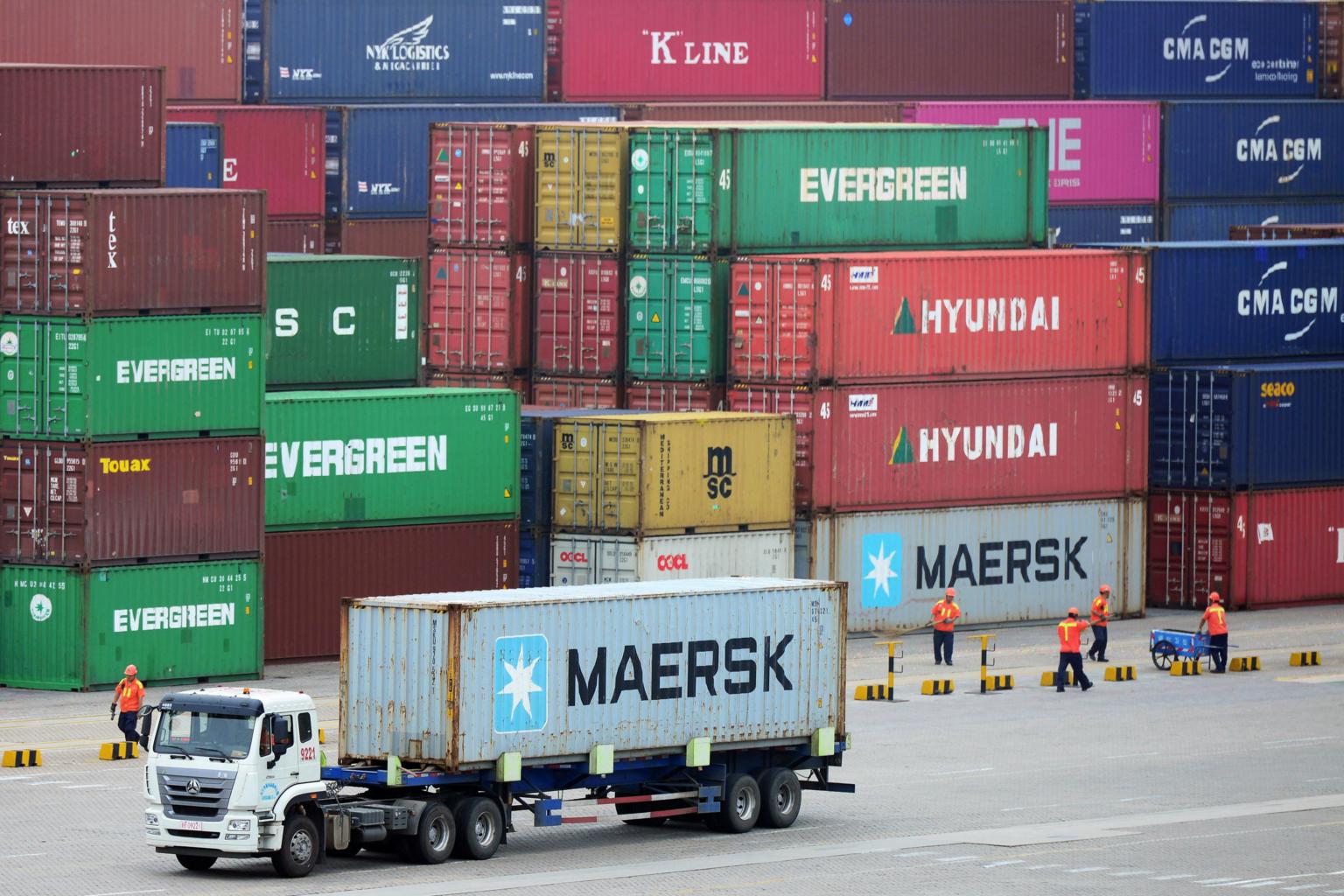Asian economic outlook dim due to trade war and global slowdown: ADB
Sign up now: Get ST's newsletters delivered to your inbox

China's economy will probably grow 6.2 per cent this year, the Asian Development Bank said, weaker than its 6.3 per cent projection in July.
PHOTO: REUTERS
TOKYO - Asia's economic outlook will dim further amid a global slowdown, with no reprieve in sight over trade tensions between the United States and China, the Asian Development Bank (ADB) said on Wednesday (Sept 25).
In revisions to its projections made in April, the Manila-based regional lender cut its growth forecast for developing Asia this year from 5.7 per cent to 5.4 per cent.
In doing so, it cited a slowdown in world economic activity and trade, the re-escalation of the US-China trade war, and a sharp contraction in the global electronics cycle.
Singapore and Hong Kong, which are heavily reliant on trade and investment, are most susceptible to these headwinds, the ADB said.
It slashed its growth forecast for Singapore this year from 2.6 per cent to 0.7 per cent. It was also bearish on the outlook for next year, projecting 1.4 per cent growth, down from the previous 2.6 per cent forecast.
"With plummeting exports, economic expansion collapsed from 4.4 per cent year on year in the first half of 2018 to a paltry 0.6 per cent in the same period of 2019," it said in the update to the flagship Asian Development Outlook 2019 report. Weakening exports and investment slowed growth across different sectors, it said, adding that near-term growth prospects were bleak as the US-China trade conflict bedevils global growth.
The ADB also cut its forecast for Hong Kong this year from 2.5 per cent to 0.3 per cent, and next year from 2.5 per cent to 1.5 per cent.
This was mainly due to the US-China trade conflict, as well as domestic turmoil that has "started to weaken inbound tourism and worsen already prudent local economic sentiment as evidenced by a continued fall in retail sales".
While the ongoing trade conflict has weakened overall manufacturing sentiment, the ADB saw a silver lining for developing economies like Vietnam and Bangladesh which it said were poised to benefit from "trade re-direction" as firms consider moving out of China to avoid US tariffs.
Japanese companies like Uniqlo parent Fast Retailing, electronics manufacturer Kyocera and games console maker Nintendo are among those reportedly considering shifting - or have already shifted - their production lines out of China to reduce their exposure to the fallout of the trade war, which has weighed on the world economy.
According to the ADB's forecasts, the US, which expanded 2.9 per cent last year, will grow 2.3 per cent this year and 1.9 per cent next year.
China, which grew 6.6 per cent last year, is predicted to grow 6.2 per cent this year and 6.0 per cent next year.
The ADB was slightly bullish on Japan, which grew 0.8 per cent last year, revising upwards its forecast for this year from 0.8 per cent to 1.2 per cent. But it trimmed its growth projection next year from 0.6 per cent to 0.5 per cent.
Japan defied expectations by registering a stronger-than-expected 2.8 per cent expansion in the first quarter, and 1.8 per cent growth in the second quarter.
ADB chief economist Yasuyuki Sawada told a news conference in Tokyo, in response to a question by The Straits Times, that resilient domestic consumption has helped to cushion the impact of the US-China trade war.
He added that he was optimistic that an increase in the consumption tax from next Tuesday (Oct 1) from 8 to 10 per cent will not lead to a recession as it had in 2014, when Tokyo last enacted a tax hike from 5 to 8 per cent. He noted that Tokyo was taking steps to help consumers cushion the blow.


